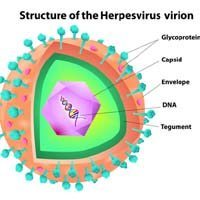How Inflammation, Stress, and Signaling Shape Mesothelioma’s Growth

Scientists are looking at how long-term inflammation, cell stress, and messed-up cell signaling help mesothelioma cancer cells grow and spread.
By looking at these processes in mesothelioma patients, the scientists can learn more about new ways to treat this aggressive cancer.
Revolutionizing Mesothelioma Treatment
Malignant mesothelioma is a type of cancer that develops from the thin layer of tissue that covers many of the body’s internal organs. When it grows in the lining of the lungs, it is called pleural mesothelioma. There are about 2,000 cases of pleural mesothelioma in the United States each year.
Mesothelioma is linked to exposure to a toxic mineral called asbestos. It can take decades for symptoms of mesothelioma to appear after a person is exposed to asbestos.
How Inflammation, Stress, and Signaling Shape Mesothelioma’s Growth
Mesothelioma is a rare cancer, so we are still learning about the best ways to treat it. One way to do this is to learn more about how it grows in the body.
One major factor is inflammation. When asbestos gets inside a person’s body, their body will react by turning on its immune system to fight the invading asbestos fibers. This reaction causes irritation in the tissue around the asbestos, and this can lead to the growth of tumors.
This inflammation can lead to something called oxidative stress. The body’s immune response to asbestos in the body causes the release of harmful molecules that can damage cells and tissues. This reaction also contributes to the growth of tumors, just like inflammation.
All this stress on the body’s tissues causes cells to have a hard time communicating properly with each other. The interrupted signaling makes it almost impossible for the body’s tissues to function as they should, which means it is easier for cancer cells to grow and spread.
Scientists have identified these processes as potential targets for future mesothelioma treatments. If scientists can come up with ways to fix inflammation, stress, or improper cell signaling, then they can stop cancer cells from growing.
Disrupting these processes could lead to better treatment outcomes for patients with mesothelioma.
Source
Fiorilla I, Martinotti S, Todesco AM, et al. Chronic Inflammation, Oxidative Stress and Metabolic Plasticity: Three Players Driving the Pro-Tumorigenic Microenvironment in Malignant Mesothelioma. Cells. 2023;12(16):2048. Published 2023 Aug 11. doi:10.3390/cells12162048. https://www.ncbi.nlm.nih.gov/pmc/articles/PMC10453755/





